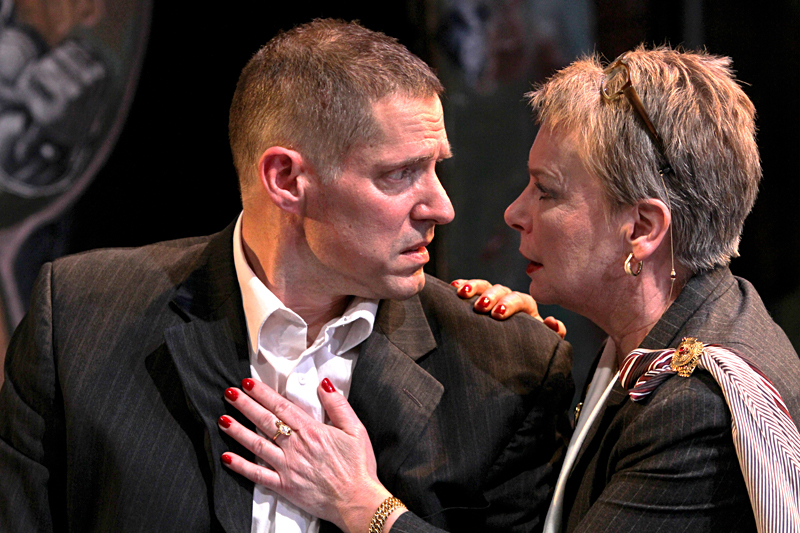Drawing parallels between the American and Roman republics has been a popular sport since the Mayflower, and the intensity picks up even more in election years. Are we a republic or a mob-ocracy? Is the crowd virtuous or virulent? What’s the right size and role for the military? Shakespeare asked the same questions of his Elizabethan society in this uneven but fascinating tragedy, set in ancient Rome. Seattle Shakespeare’s production effectively contemporizes the tale of professional warrior Caius Martius (later dubbed “Coriolanus,” magnificently played like a smashed-up quarterback by hulking David Drummond) who wins status on the battlefield but can’t win the hearts of common citizens, who resent his arrogance in the midst of a corn crisis. Here the rabble resembles the 99-percenters of OWS, right down to their grunge fashions and waving placards. Costumer Pete Rush puts placatory senator Menenius (an unctuously political Peter A. Jacobs) in a sharp Wall Street suit as he tries to sell Coriolanus’ leadership to the people. Meanwhile, the Tribunes of the People (David S. Klein and Gerald B. Browning), like shortsighted Beltway insiders, plot Coriolanus’ fall. There’s a lot to keep track of (clarified by extensive program notes and a new voice-over introduction), but the story feels so timely that’s it’s worth the investment.
Director David Quicksall cast strong, dynamic actors in the principal roles, including the radiantly noxious Therese Diekhans as Coriolanus’ bloodthirsty and power-hungry mother. Her manipulative, conditional love for Coriolanus drives him into rebellious alliance with Tullus Aufidius (Mike Dooly). The two soldiers’ bond has some nicely directed hints of a homosexual dynamic; they prefer sweatily sparring to politics.
Carol Wolfe Clay’s set features large, semi-abstract paintings that simultaneously evoke antiquity (in crumbling textures and a Lascaux-cave palette) and modern absurdities (a centurion incongruously smokes a cigarette). Sound designer Nathan Wade’s trance tracks and drumbeats further enhance the sense of timelessness, as does Kent Cubbage’s vermillion battlefield lighting.
When Coriolanus, the despised killing machine, finally dies, the sound of waves promises to both carry him out to sea and bring him back again in an endless tide cycle of violence. And indeed he will return: Ralph Fiennes’ new movie adaption opens February 3.








